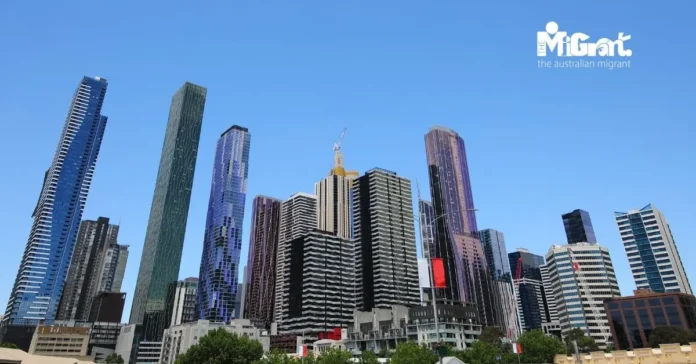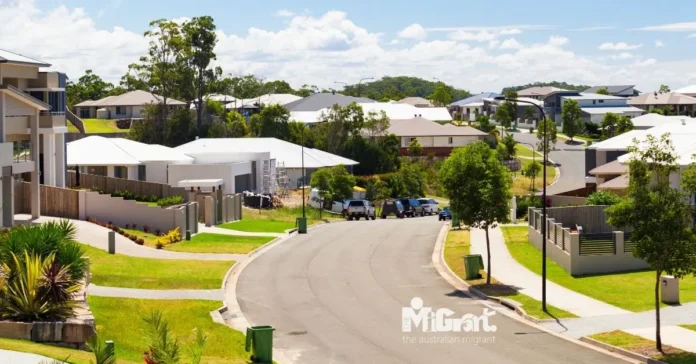When Ana and her family, newly arrived migrants from the Philippines, moved from Sydney to a small town in regional New South Wales, they thought the hardest part—getting their visa—was over. However, as new migrants adjusting to life in a regional area, they discovered that building a fulfilling life required navigating unexpected challenges and embracing new opportunities. While visas open doors, settling in regional Australia means finding a home, a job, and a sense of belonging in a close-knit community.
1. Housing and Settlement: Finding Your Home in the Outback
Regional towns often promise more affordable housing compared to big cities like Melbourne or Sydney. For example, Ana’s family found a charming three-bedroom home in Wagga Wagga for a fraction of Sydney’s rent. However, the trade-off came in the form of limited rental options and a waitlist for desirable properties.
Key Considerations:
- Affordability: Towns like Toowoomba in Queensland and Bendigo in Victoria are popular for their reasonable housing costs.
- Proximity to Work: Ensure your home is within a manageable commute to your job, as public transport in regional areas is sparse.
- Tips: Contact local real estate agents before your move and explore community noticeboards for rental listings.
2. Employment Opportunities: Filling the Skills Gap
Regional Australia is crying out for skilled workers in industries like agriculture, healthcare, and trades. For Sanjay, a migrant nurse who moved to Ballarat, Victoria, the town’s shortage of healthcare professionals meant immediate employment. However, adjusting to a smaller hospital environment was a learning curve.
Challenges:
- Recognition of overseas qualifications can be tricky.
- Job networks are often word-of-mouth in smaller towns.
Tips for Success:
- Check job boards like Seek with regional filters.
- Explore government-supported initiatives such as DAMA (Designated Area Migration Agreements) tailored to regional workforce needs.
3. Access to Essential Services: Getting the Support You Need
Regional Australia offers a slower pace of life, but accessing services like healthcare and education might require extra planning. Ana struggled to find a specialist for her son’s allergies nearby, leading to trips to Sydney for appointments.
Key Differences Across States:
- New South Wales and Queensland: Public hospitals are spread out, and wait times may be longer.
- Victoria: Regional cities like Geelong offer better healthcare options but are still more limited than Melbourne.
Quick Tip: Research local schools, healthcare centers, and public transport before moving to ensure your area meets your family’s needs.
4. Social Integration and Cultural Adjustment: Finding Your Tribe
Making friends in close-knit regional communities can take time. Priya, who moved to Toowoomba, Queensland, for her husband’s job, joined the local library’s book club to break the ice. Over time, she found friends and built a sense of belonging.
What Helps:
- Joining local sports clubs, hobby groups, or faith-based organizations.
- Participating in town events like markets and festivals.
5. Overcoming Isolation: Staying Connected
Feeling isolated is a common challenge for migrants in regional areas. For Ana, staying connected with family in Sydney through video calls was a lifeline.
Ideas to Combat Isolation:
- Join online forums or social media groups for migrants in your area.
- Take part in community volunteer programs to meet locals.
6. Programs and Policies Supporting Migrants
The Australian government has ramped up efforts to make regional migration easier and more appealing. Programs like the Regional Australia Migration Program (RAMP) offer incentives such as permanent residency pathways for migrants who settle and work in these areas.
Local Initiatives Worth Exploring:
- Victoria: Regional Skills Shortage Visa (RSMS) for trades and healthcare.
- Queensland: Support for small business start-ups in Toowoomba.
- NSW: Community grants for cultural projects in Wagga Wagga.
7. Looking to the Future: A Two-Way Street
Migrants like Sanjay and Priya are reshaping regional Australia. Their skills and cultures enrich these communities, while the towns offer opportunities for growth and a quieter, more fulfilling lifestyle.
Key Aspects of Regional Towns in Australia
Average Rent Prices

Median Weekly Rent for Houses in Regional Areas (as of June 2024):
- New South Wales (NSW): $550 per week
- Victoria (VIC): $450 per week
- Queensland (QLD): $500 per week
- South Australia (SA): $420 per week
- Western Australia (WA): $480 per week
- Tasmania (TAS): $400 per week
- Northern Territory (NT): $470 per week
- Australian Capital Territory (ACT): $600 per week
Source: Homes Victoria Rental Report
Top Industries Needing Workers

Industries with High Demand for Workers in Regional Australia:
- Healthcare and Social Assistance: Registered nurses, aged and disabled carers, child carers
- Construction and Engineering: Construction managers, civil engineering professionals, electricians
- Agriculture, Forestry, and Fishing: Farmers, agricultural technicians, forestry workers
- Education and Training: Early childhood teachers, secondary school teachers
- Hospitality and Tourism: Chefs, cooks, hotel managers
Source: Jobs and Skills Australia – Occupation Shortage List
Population Sizes of Selected Regional Towns

Estimated Population Figures:
- Wagga Wagga, NSW: Approximately 65,000 residents
- Ballarat, VIC: Around 110,000 residents
- Toowoomba, QLD: Approximately 135,000 residents
- Launceston, TAS: Around 87,000 residents
- Albany, WA: Approximately 37,000 residents
Source: Australian Bureau of Statistics
Call-Out Box:
Quick Tips for Settling in Regional Australia
- Research job opportunities before moving.
- Attend local events to meet new people.
- Explore government grants and programs for migrants.
Resources List:
- Job Active for Regional Australia: Explore regional job opportunities and employment services. Job Active
- Designated Area Migration Agreements (DAMA): Learn about DAMA and how it facilitates regional migration. DAMA Information
- Migrant Support Groups on Facebook: Connect with communities and support networks. Facebook Groups
These resources offer valuable information and support for migrants considering or currently settling in regional Australia.
Conclusion
Life in regional Australia offers unique rewards, but it also demands adaptability and resilience. With the right preparation and a willingness to engage, migrants can turn these towns into a home away from home. Whether you’re considering the vineyards of Victoria, the beaches of Queensland, or the plains of New South Wales, settling in regional Australia is about more than just finding a house—it’s about building a life.
Let us know your thoughts or share your own migration story in the comments below!
Looking to apply for an Australian visa or explore migration opportunities? We can connect you with a trusted Registered Migration Agent who specializes in student, skilled worker, partner, family, and visitor visas. Whether you're planning to study, work, or settle in Australia, they’ll guide you through every step of the process. Send your inquiries to themigrant.au@gmail.com, and we’ll help you get in touch with the right experts for your visa and migration needs!




